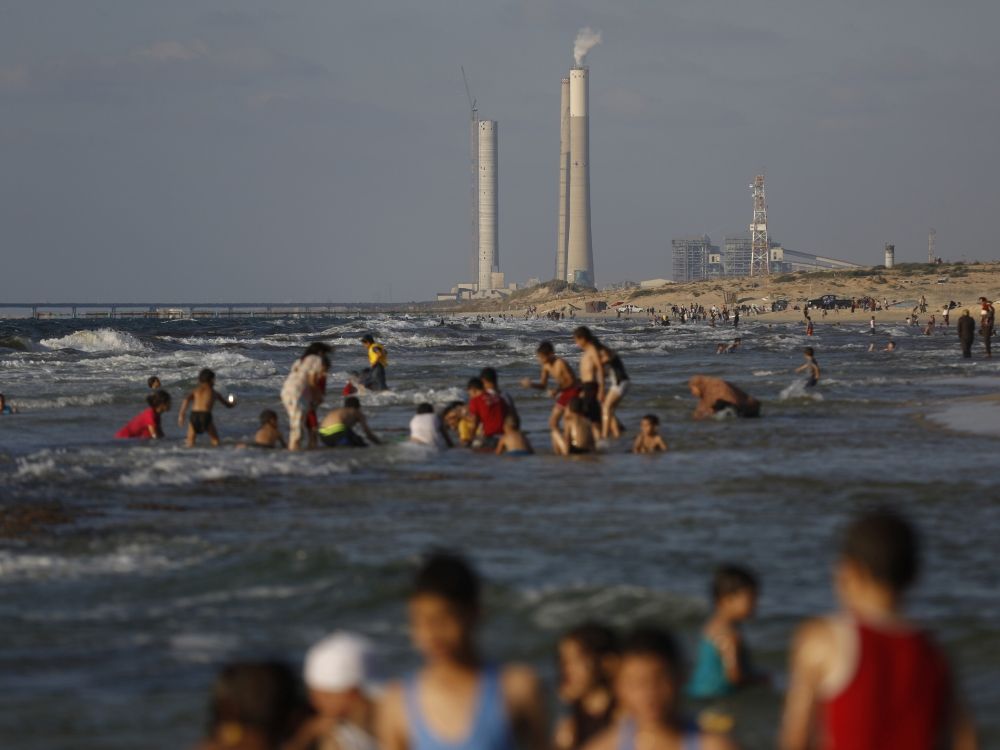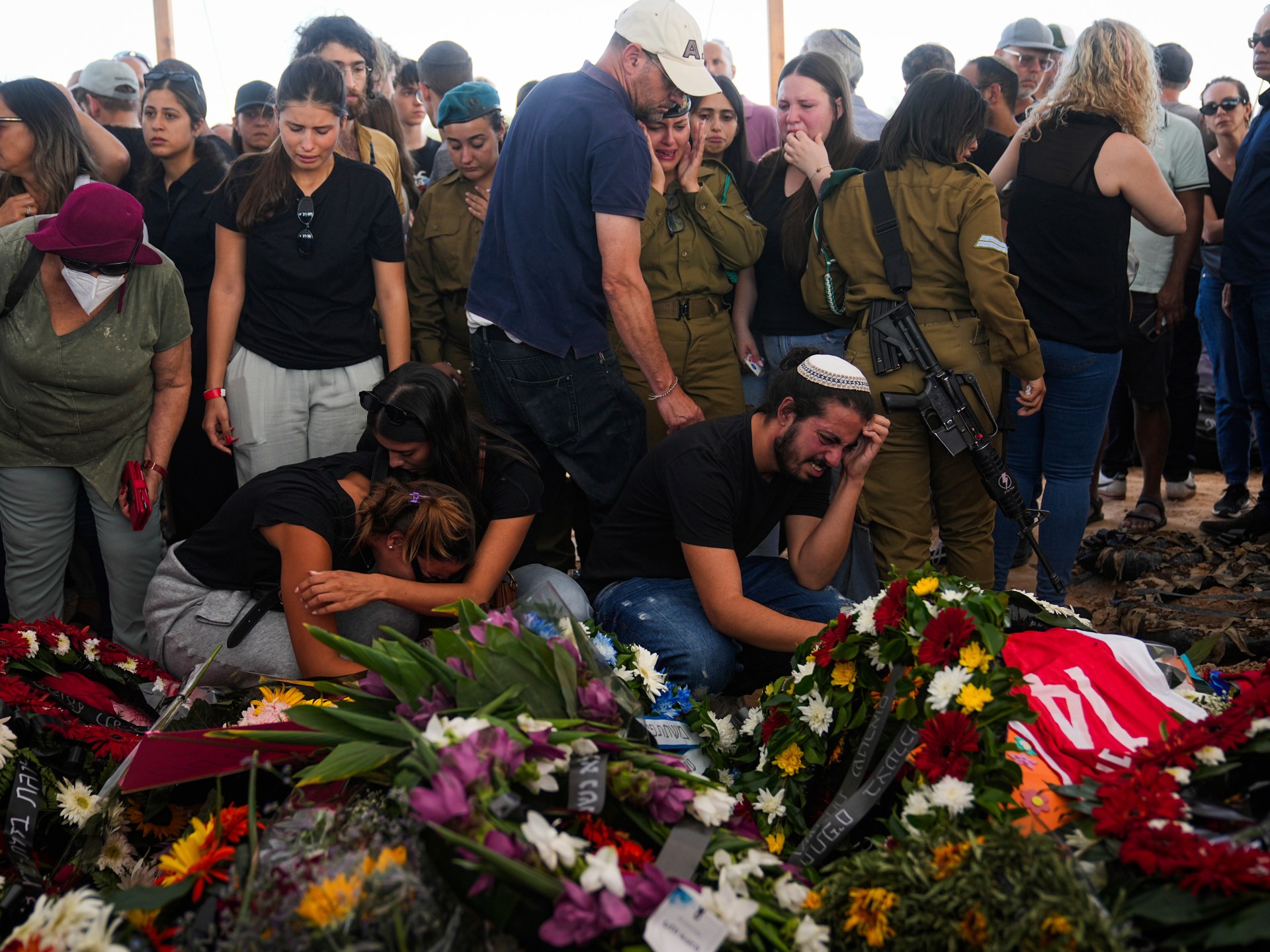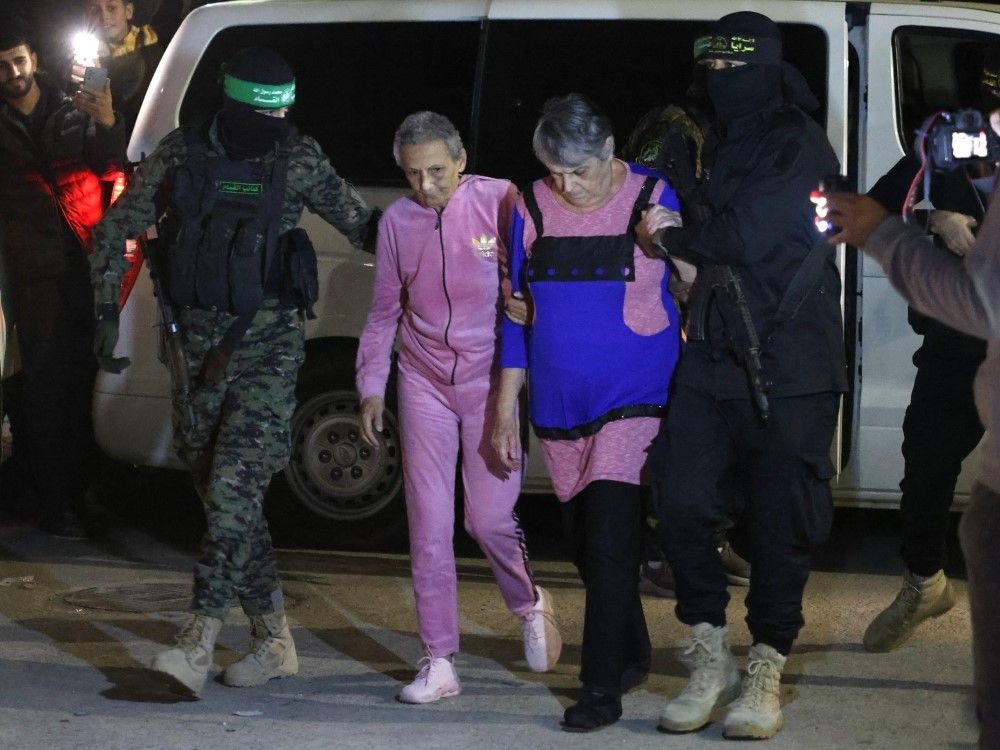Gazans’ support for Hamas has remained strong since the horrific Oct. 7 massacre, according to a
March 20 poll from the Palestinian Center for Policy and Survey Research, as has their desire to have the group continue to control the Gaza Strip when the current war is over.
If that is the will of the majority of the people of Gaza, then peace and a two-state solution are impossible.
What this poll, and others, demonstrate is that despite what the West wants to believe, the actions and aims of Hamas are closely linked to the desires of the people of Gaza.
If the people of Gaza want peace and a two-state solution, as a new poll appears to suggest, they might want to rethink their overwhelming support for the genocidal terrorist organization Hamas.
Gazans’ support for Hamas has remained strong since Oct. 7, as has their desire to have the group continue to control the Strip

apple.news
Last week, NDP members donned their finest keffiyeh scarves when they put forward a motion to recognize a state of Palestine.
Advancing that motion, NDP MP Heather McPherson said, “Our NDP motion does not mean Canada would be recognizing Hamas. Hamas is a terrorist organization and it is not the government of Gaza. In fact, it is far from it.”
Only five per cent of Palestinians support a two-state solution; three-quarters want Israel wiped off the map

apple.news
Facts, unfortunately, would appear to contradict McPherson since Hamas was elected to govern Gaza in 2006 and has been in power ever since.
And how do Gazans feel about Hamas today? The poll asked, “If it was up to you, which of (these) would you prefer to see in control of the Gaza Strip?”
In Gaza, 52 per cent of people wanted Hamas, an increase of 14 points since the question was asked three months ago. The answer was significantly more than the 21 per cent who said they wanted the Palestinian Authority under someone other than current leader Mahmoud Abbas.
How satisfied were Gazans with Hamas’s performance in the war and with its leader, Yahya Sinwar? A total of 62 per cent were satisfied with Hamas (plus 10 points from three months ago) and 52 per cent were satisfied with Sinwar.
According to the poll, if elections were held today, 34 per cent of Gazans would vote for Hamas, with the other choices being Fatah, a third party, none of the above and wouldn’t vote.
And this poll is not an outlier. A
November survey by the Arab World for Research and Development found that almost 60 per cent of Gazans had a positive view of Hamas.
So when McPherson says Gazans are not supportive of Hamas, she is clearly talking through her pristine checkered scarf.
In another part of her speech, she said that Canadians “were horrified on Oct. 7 by the vile terrorist attack on innocent civilians in Israel by Hamas terrorists.”
A reminder: Hamas murdered 1,200 people on Oct. 7, raped and gang-raped women before killing them, tortured men, women and children, mutilated bodies, often by burning them, and kidnapped more than 250 people. The Hamas killers even took videos of their horrific acts.
Canadians, and the world, may have been horrified by what happened on Oct. 7, but Palestinians, not so much.
Gazans’ support for Hamas has remained strong since Oct. 7, as has their desire to have the group continue to control the Strip

apple.news
According to this latest poll, among Palestinians who had not watched the videos, 97 per cent believed Hamas did not commit atrocities on Oct. 7. Even among those who had watched the videos, 81 per cent said Hamas did not commit atrocities.
What are we to make of that? That four-out-of-five Palestinians who had watched the videos think the Hamas terrorists were justified? That they acted appropriately?
Despite this enormous backing for Hamas and its actions, Gazan support for a two-state solution has almost doubled in recent months. According to the poll, 62 per cent of people in Gaza support a two-state solution, which is up from 35 per cent three months ago and a similar number six months ago.
When asked about ways to “break the stalemate,” 55 per cent of Palestinians supported “confrontations and armed intifada” (down from 69 per cent in December), while 45 per cent chose “unarmed popular resistance” (up from 39 per cent).
Hamas, with the apparent popular support of Gazans, neglected the basic responsibilities of government to focus on conflict instead

nationalpost.com
When asked to choose a method to end Israeli occupation and establish an independent state, 39 per cent of Gazans selected “armed struggle” over “negotiations” (23 per cent).
Given that support for “armed struggle” was down from 56 per cent in December, it appears as though Gazans may be coming around to the notion that violence may not be the best way to achieve their ends. But neither will their continued support for Hamas.
It certainly does not help that some Canadian politicians, including Foreign Affairs Minister Mélanie Joly, are blind to these political realities.








